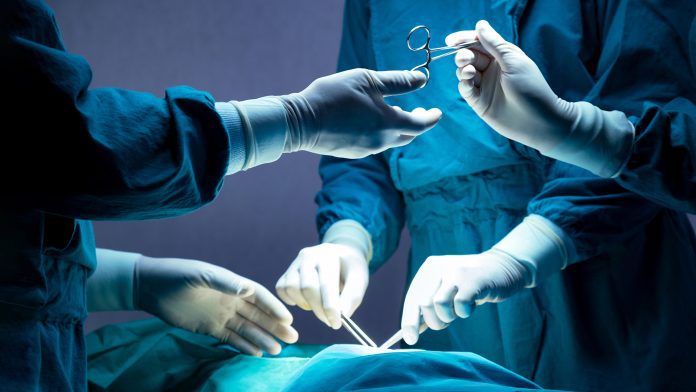
New research by the University of Birmingham sets out ways to provide safer surgery by minimising surgical site infections.
Surgical care experts revealed two studies in The Lancet that aim to provide insight into surgical site infections and their profound effect on the healthcare system and patients, especially those in low-and middle-income countries (LMIC).
The researchers found that routinely changing gloves and instruments before closing wounds could significantly reduce surgical site infection – the world’s most common postoperative complication. They also tested a new toolkit that can help hospitals with pandemic preparedness, heatwaves, winter pressures and natural disasters which could reduce cancellations of planned procedures.
Surgical site infections are common around the world
Patients in LMICs are affected by surgical site infections. The researchers carried out a trial in Benin, Ghana, India, Mexico, Nigeria, Rwanda, and South Africa and found that a routine switch of gloves and instruments during abdominal wound closures could prevent up to one in eight cases of surgical infections.
“Surgical site infection is the world’s most common postoperative complication – a major burden for both patients and health systems. Our work demonstrates that routine change of gloves and instruments is not only deliverable around the world, but also reduced infections in a range of surgical settings. Taking this simple step could reduce SSIs by 13% – simply and cost-effectively,” commented Aneel Bhangu, University of Birmingham.
The ChEETah trial was funded by the UK’s National Institute for Health Research (NIHR).
Surgical site infections cause pain, disability, poor healing with risk of wound breakdown, prolonged recovery times and psychological challenges. In countries where patients pay for their medical treatment, this can push individuals into poverty following treatment. The simple method of changing gloves and instruments is cost-effective and can have a huge impact.
Developing the Surgical Preparedness Index (SPI)
The team also designed the Surgical Preparedness Index (SPI), a key study assessing the extent to which hospitals around the world were able to continue elective surgery during COVID-19.
The researchers identified different features of hospitals that made them more or less ‘prepared’ for times of increased pressure. The team used COVID-19 as an example but highlighted that healthcare systems are constantly put under pressure throughout the year.
The SPI scores hospitals based on their infrastructure, equipment, staff, and processes used to provide elective surgery. The higher the resulting SPI score, the more prepared a hospital is for disruptions.
The experts asked 4,714 clinicians in 1,632 hospitals across 119 countries to assess the preparedness of their local surgical departments. They found that most hospitals around the world were poorly prepared, and suffered a big drop in the number of procedures they were provided during COVID-19. The team found that a 10-point increase in the SPI score corresponded to four more patients that had surgery per 100 patients on the waitlist.
Lead author James Glasbey, from the University of Birmingham, commented: “Our new tool will help hospitals internationally improve their preparation for external stresses ranging from pandemics to heatwaves, winter pressures and natural disasters. We believe it helps hospitals to get through their waiting lists more quickly and prevent further delays for patients. The tool can be completed easily by healthcare workers and managers working in any hospital worldwide – if used regularly, it could protect hospitals and patients against future disruptions.”
























